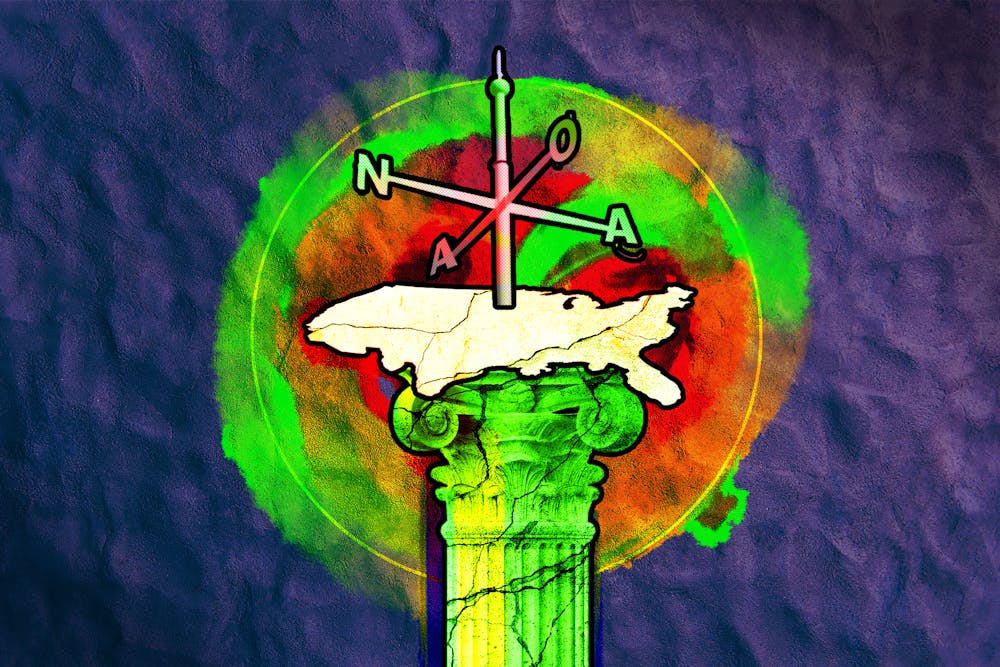Even over a week after Hurricane Helene hit North Carolina, the extent to which the western area of the state has been affected is not completely known. The Appalachian Mountains are facing catastrophic levels of destruction due to horrific floods and landslides. Nearly 300 miles away from the nearest ocean, the aftermath of Helene has been utterly devastating.
It’s hard to say that Helene and the destruction left in its wake could have been any worse. Yet Project 2025, the 920-page document that outlines the policy objectives of the next term for the Republican Party, aims to break up and downsize the National Oceanic and Atmospheric Administration, labeling it as a contributing factor to the narrative about climate change. Without this vital organization, the impact of future hurricanes could be more destructive than Helene.
Currently, hurricanes like Helene are monitored by the NOAA, which houses the National Hurricane Center and National Weather Service. These organizations use advanced technology to monitor storms, predict their impact and issue updates about the state of each named storm throughout hurricane season.
Project 2025 suggests that NWS and the NHC, rather than providing information for the sake of public safety, should instead focus on feeding data to private companies. It also states that the NHC should present their data without claiming that climate change has caused hurricanes to become stronger.
Downsizing the NOAA would be catastrophic to communities affected by hurricanes. The essential information they provide, the information that keeps residents of hurricane-prone areas continuously informed and safe, would be difficult to acquire by those who need it most.
Despite its intense length, Project 2025 does not detail exactly what breaking up and downsizing would mean for these federal agencies. At the extreme, they might not exist at all. At minimum, a decrease in funding and executive capabilities could mean that the safety of those in many states would be at risk.
Yet the destruction of the NOAA and the smaller organizations it houses is no longer just a concern of southern, coastal areas. The effects of climate change, which are evident by the devastation caused by Hurricane Helene, mean that hurricane season will only become more intense. As higher surface and ocean temperatures contribute to more destructive and long-lasting hurricanes, the data that the NHC provides will be applicable to more people, and just as necessary.
Western North Carolina, which is still reeling from the devastating effects of Helene, typically votes Republican. Voters across North Carolina must consider the response to the state of emergency that both parties have had, and what future responses, if at all, might look like with and without the NOAA. This November, determine the value you place in being prepared for natural events that will occur regardless of who is elected.
It is crucial that the NOAA be able to function as it currently does as it is vital to the health and well-being of so many. Hurricane prediction and recovery, as well as the safety of those affected, should not be a political issue. It is an issue of protecting people's lives and maintaining their safety. Breaking up and privatizing this organization is immoral and detrimental to public safety, and only ensures that those in the path of future natural disasters will be left in the dark.



